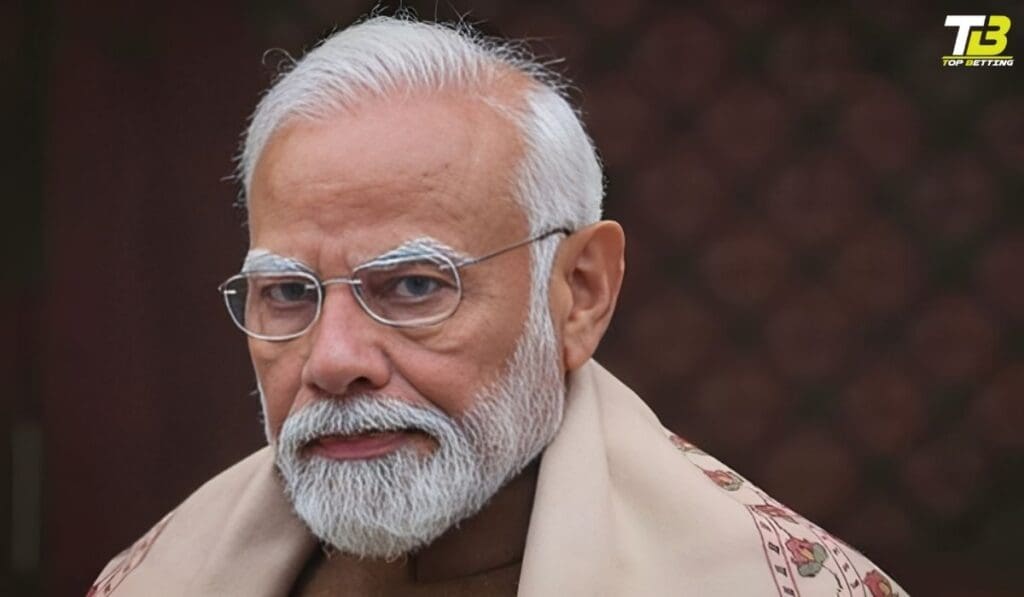
The Modi government emphasizes |Did all we promised with CAA
The Citizenship (Amendment) Act was approved four years ago, and the Narendra Modi government is highlighting its message to voters, “Jo kaha, voh kiya” (delivered all that we promised),” by notifying the rules of the act right before the upcoming general elections.
“With this notification PM Shri @narendramodi Ji has delivered on another commitment and realised the promise of the makers of our Constitution to the Hindus, Sikhs, Buddhists, Jains, Parsis, and Christians living in those (neighboring) countries,” wrote Union Home Minister Amit Shah on X minutes after the rules were notified. Shah has been leading the CAA.
The BJP included the CAA in its manifesto, and it was introduced and enacted in the months leading up to the 2019 Lok Sabha elections. It streamlined the citizenship application procedure for “persecuted religious minorities,” which included Hindus, Parsis, Sikhs, Buddhists, Jains, and Christians, and excluded only Muslims, who had entered India before December 31, 2014. These groups were drawn from neighboring Pakistan, Bangladesh, and Afghanistan.
The government was forced to halt its notification of the Act due to nationwide protests against it, which were perceived as discriminatory against Muslims. The opposition parties accused the BJP of politicising the CAA in order to divide voters while they waited for the announcement of its guidelines.
With the passage of the CAA, the BJP is hoping to gain ground in West Bengal, home to a sizable Hindu immigrant population from Bangladesh who has been agitating for the right to citizenship. Should Modi’s objective of securing 370 seats in the upcoming Lok Sabha elections materialize, the state, which is run by the Trinamool Congress and has 42 seats, represents a good BJP catchment region. In Bengal, the BJP has previously won eighteen seats.
As for the protests over the CAA, unlike the widespread agitation of 2019, sources said the government is certain that these do not spiral out of control, even though BJP officials acknowledged they expected them, at least in part. Since citizenship for “outsiders” is a sensitive topic in party-ruled Assam, the government will be especially anxious about that state.
However, a BJP leader stated that the party is hoping that the action would strengthen Prime Minister Modi’s reputation as a “doer” and “decisive leader.” This will enhance Brand Modi and elevate his perception among Hindus. The catchphrases for Modi will be “Jo kehte hain, so karte hain,” not only in West Bengal but also in Uttar Pradesh, Telangana, and Maharashtra. “Hindu hit ki raksha karte hein” means “We uphold Hindu welfare by doing as we say.”
The Rajbanshis, who comprise Hindu immigrants from Bangladesh, and the Matuas, a Dalit Hindu minority with roots in Bangladesh, are the two communities in Bengal who can expect an expedited citizenship process. Leaders of the BJP claimed that it might also help the party garner a higher share of the Hindu vote.
In Assam, the CAA is perceived as going against the Assam Accord, a pledge given to the state that established 1971 as the deadline for recognizing immigrants who had entered the state. There were reports on Monday night of intermittent protests over the CAA issue occurring around the state.
Things were going to get “tough” for the party government in the state, a senior BJP leader acknowledged. But he added: “The party’s ideological commitment is the CAA. If that pledge is not kept, the BJP will not be allowed to contest in the elections.
The Modi government had promised a Ram temple at Ayodhya, the repeal of Article 370, and a Uniform Civil Code. It also vowed to implementing a CAA, claiming that India was the natural home of all “persecuted” Hindus.
According to a top official, the Assam Chief Minister Himanta Biswa Sarma was trusted by the leadership to “handle” the issue. “There has been ample time for the state administration to get ready for this.”
Despite ongoing protests against the CAA in Assam, BJP leaders downplayed the likelihood that the issue would affect the polls, pointing out that the party had won nine of the 14 Lok Sabha seats in the 2019 general elections.
Following the passing of the CAA, the BJP and its allies also won back to power in May 2021 for a second consecutive term.
The BJP emerged as the largest Opposition party in Bengal, where state elections were held in 2021. However, the party did not fare well in the districts of North 24 Parganas and Nadia that border Bangladesh. This was interpreted as the Matua people’s resentment of the BJP for not informing the CAA. That being said, a sizable portion of the Rajbanshis remained loyal to the BJP.
The state BJP leader stated, “Had the CAA not been implemented, the party could have lost the support of both communities this time.”

The concerns about the “NRC”
The BJP has made an effort to allay concerns about the CAA in both its 2019 manifesto and subsequent remarks. “We will enact all the necessary legislation to allay the concerns of those Northeastern state populations whose members have voiced doubts about it. Its manifesto stated, “We reaffirm our commitment to safeguarding the linguistic, cultural, and social identity of the people of the Northeast.”
The CAA is “a law to give citizenship,” according to the government, and “not take away the citizenship of any Indian citizen, irrespective of religion.” It has stated that “this Act is only for those who have suffered persecution for years and have no other shelter in the world except India” and that the government is entitled by the Constitution to “grant citizenship from a humanitarian perspective and to provide fundamental rights to religiously persecuted refugees.”
However, the notion that the CAA is a step toward an NRC—or, as Shah phrased it, “Aap chronology samajhiye (understand the sequence)… first CAA, then NRC”—is one reason why concerns about it have persisted, particularly among Muslims. The National Register of Citizens, or NRC, is an attempt to specifically identify illegal immigrants, and Muslims worry that if that were the case, they would be the only ones who could not benefit from the CAA.
Assam is the only state that has managed to carry out an NRC thus far, and even there, the final list is mired in controversy due to its numerical values. But there is still danger that the Modi administration would force it through, especially since the RSS also has serious concerns about “infiltration.”
The exclusion of all undocumented Muslim immigrants from the Act’s benefits, according to critics, was not a “reasonable” classification, and they saw the Act as a violation of Article 14 of the Constitution, which guarantees equality before the law and equal protection under it for all. The Supreme Court is still considering the case.

The RSS URL
With the RSS, there is an additional “link.” Sangh leader Syama Prasad Mookerji addressed the “persecution” of Hindus in East Pakistan shortly after Partition. Mookerji was a minister in the Nehru government during this period, and a constant flow of refugees continued to arrive in India.
Union Home Minister Sardar Vallabhbhai Patel was pressing for a negotiated settlement while Nehru was seeking a tough position against Pakistan, so there was pressure on the Nehru administration to find a solution. When Nehru brought Liaquat Ali Khan, the prime minister of Pakistan, to Delhi in April 1950, the negotiations resulted in an agreement requiring both parties to give their minorities “equality, freedom, and justice.”
According to B. D. Graham, a renowned Jana Sangh scholar, Mookerji insisted on a provision stipulating penalties for noncompliance. He resigned from the Cabinet when this was not included in the Nehru-Liaquat agreement.











